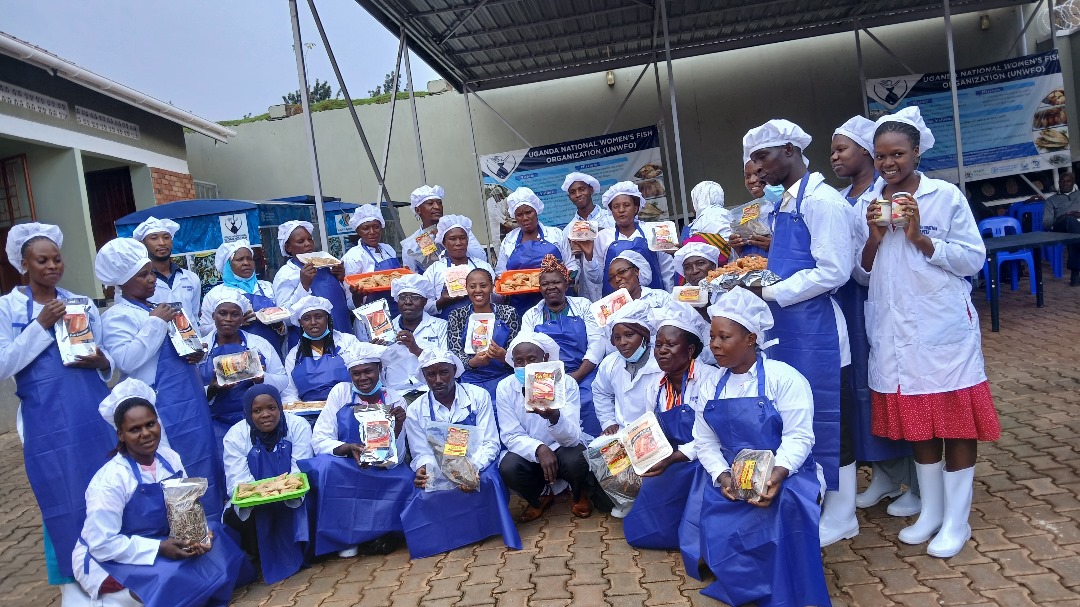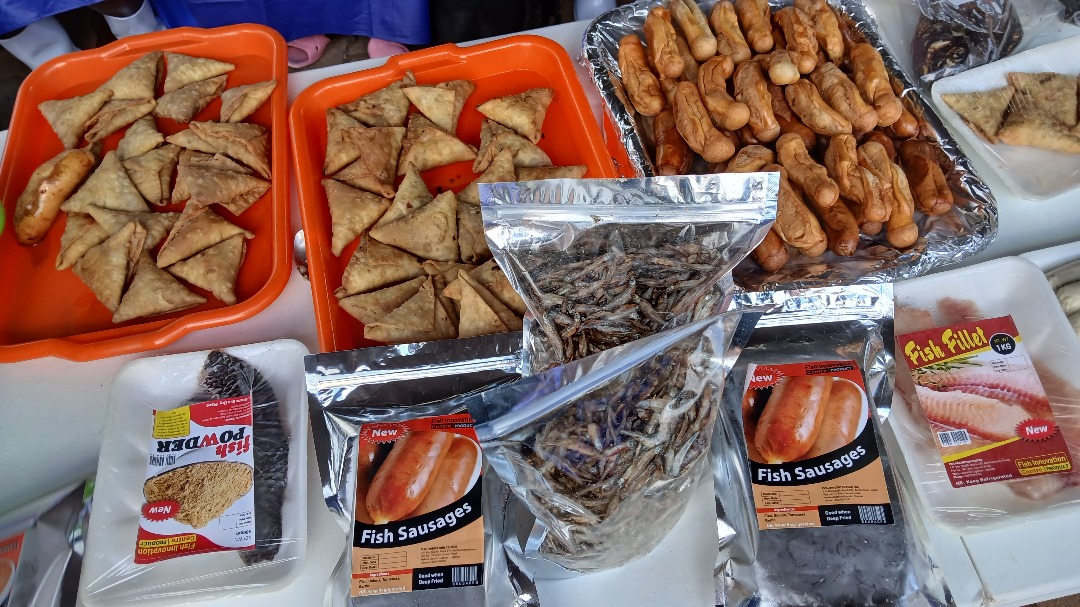FAO and the government of Uganda train women working in small-scale fisheries processing

©Aloysius Mukasa/UNWFO
In an effort to strengthen Uganda's small-scale fisheries sector, women and youth from selected groups in Masaka, Buikwe, and Mukono districts successfully completed a two-day practical training on fish handling, hygiene, processing, value addition, and marketing. The training was organized by the Food and Agriculture Organization (FAO) and Uganda's Ministry of Agriculture, Animal Industry, and Fisheries (MAAIF), and delivered by the Uganda National Women in Fisheries Organization (UNWFO). It was financially supported by the global small-scale fisheries project, "Implementing the Small-Scale Fisheries Guidelines for Gender-Equitable and Climate-Resilient Food Systems and Livelihoods – Phase 2".
| The core objective of the training was to enhance participants' skills in post-harvest fish handling techniques, ensuring quality is not compromised, while introducing them with the use of essential equipment and facilities in processing and value addition. The program also aimed to equip participants with knowledge in product development and packaging strategies for local, regional, and international markets. By the end of the training, 37 participants - including 29 women and 8 men - had received valuable insights into post-harvest handling and value-addition techniques. Additionally, post-harvest training videos, produced during phase 1 of the project were disseminated to 41 Fishers and fish workers. These training videos cover key topics such as drying silver fish on raised racks to improve quality and reduce contamination risks and innovative practices like using perforated jerrycans to handle fresh fish. |
During the training, participants had the opportunity to develop new fish products, package them, and create appropriate labeling for different market segments. These achievements demonstrates the potential for small-scale fisheries to contribute more effectively to Uganda's food system and economy.
Reflecting on the program's success, FAO’s National Project Coordinator Jacob Olwo emphasized the importance of the initiative. He noted, “As we mark 10 years since the adoption of the Voluntary Guidelines for Securing Sustainable Small-Scale Fisheries in the Context of Food Security and Poverty Eradication (SSF Guidelines), such capacity-building programs are crucial. We are proud to extend this knowledge to help women in fisheries reach their full potential in supporting Uganda's food system.”
This activity is part of the ongoing commitment by FAO and the Ugandan government to enhance food security, reduce poverty, and promote climate resilience through gender-equitable practices in Uganda's small-scale fisheries. The country recently launched a National Plan of Action for Small-Scale Fisheries in Uganda, which aims to promote and elevate the subsector in the country.

